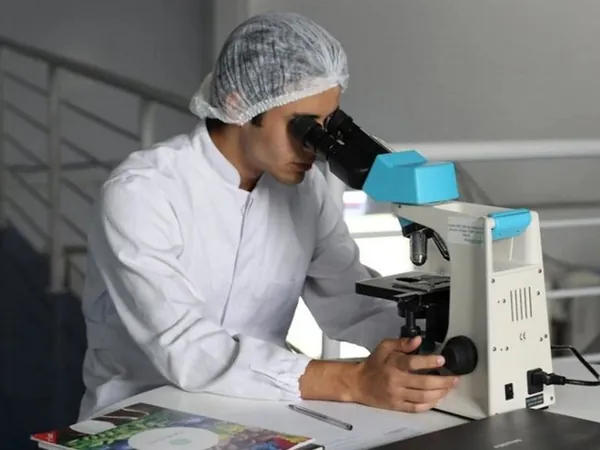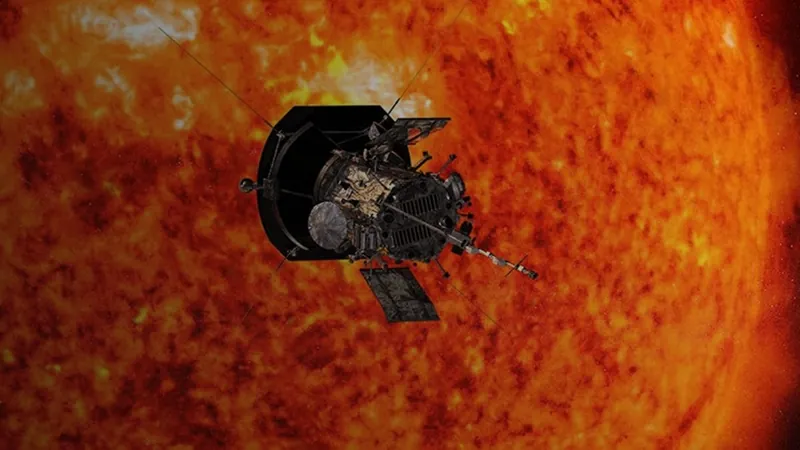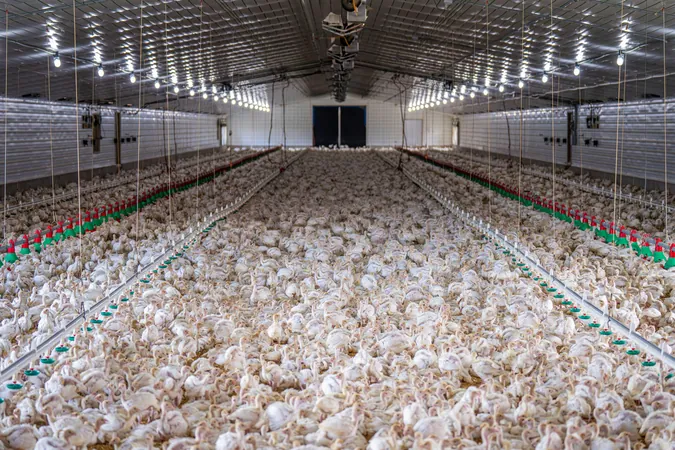
Shocking Discovery: How Cancer Cells Outsmart Chemotherapy to Survive!
2024-12-23
Author: Sophie
Recent laboratory research has revealed groundbreaking insights into how cancer cells cleverly evade chemotherapy treatments designed to starve and kill them. Although chemotherapy continues to be a critical weapon against tumors, the reality is that it doesn’t work for everyone and often not for long. This is because cancer cells have the remarkable ability to rewire their metabolism, allowing them to transform fuel into energy in ways that bypass the effects of these life-saving drugs.
The study, conducted by a dynamic team at NYU Langone Health and the Perlmutter Cancer Center, uncovers two primary mechanisms by which cancer cells manage to survive in adverse conditions—particularly in low-glucose environments where the energy from glucose (blood sugar) is limited. Understanding these survival tactics may pave the way for developing more effective combination therapies specifically targeting these resilient cancer cells.
In their investigation, researchers focused on three key drugs: raltitrexed, N-(phosphonacetyl)-l-aspartate (PALA), and brequinar. These drugs aim to block the production of pyrimidines—vital molecules that form RNA and DNA, essential for cancer cell reproduction and survival. Without enough pyrimidines, cancer cells are expected to undergo rapid starvation and death. However, the study discovered that in a low-glucose environment, cancer cells stall their consumption of uridine nucleotides, causing a surprising reduction in the effectiveness of chemotherapy.
Under normal conditions, uridine nucleotides are synthesized and utilized to fuel cell metabolism. Still, when chemotherapy blocks the synthesis of DNA and RNA, cancer cells can adapt by conserving their nucleotide pools, thereby avoiding cell death.
Perhaps most alarming is that in low-glucose environments, the activation of crucial proteins like BAX and BAK— which function to dismantle mitochondria (the cell's power plants)—is severely hindered. This activation usually triggers a series of events leading to cell death, yet the lack of glucose appears to slow down this critical pathway, meaning cancer cells can continue to thrive in conditions that should ideally lead to their demise.
Dr. Minwoo Nam, the lead investigator, expressed that these findings finally shed light on the previously murky relationship between low glucose levels in tumors and chemotherapy efficacy. He noted that unraveling this connection could lead to innovative therapies designed to trick cancer cells into behaving differently in challenging environments.
Furthermore, Dr. Richard Possemato, a senior investigator, believes that this research could eventually result in diagnostic tests that predict how individual patients’ cancer cells will respond to low-glucose scenarios, potentially leading to tailored therapies that maximize treatment efficacy.
As the research team plans to delve deeper into blocking alternative cancer pathways to invoke cell death, other experimental drugs, such as Chk-1 and ATR inhibitors, are on their radar for further examination, setting the stage for possible breakthroughs.
This study has not only highlighted the cunning ways cancer cells adapt but also opened doors for new possibilities in treatment strategies that could significantly impact future oncology practices. With continuous research and exploration, who knows how soon we might uncover even more effective ways to outsmart cancer? Stay tuned for more updates in this evolving field!









 Brasil (PT)
Brasil (PT)
 Canada (EN)
Canada (EN)
 Chile (ES)
Chile (ES)
 España (ES)
España (ES)
 France (FR)
France (FR)
 Hong Kong (EN)
Hong Kong (EN)
 Italia (IT)
Italia (IT)
 日本 (JA)
日本 (JA)
 Magyarország (HU)
Magyarország (HU)
 Norge (NO)
Norge (NO)
 Polska (PL)
Polska (PL)
 Schweiz (DE)
Schweiz (DE)
 Singapore (EN)
Singapore (EN)
 Sverige (SV)
Sverige (SV)
 Suomi (FI)
Suomi (FI)
 Türkiye (TR)
Türkiye (TR)